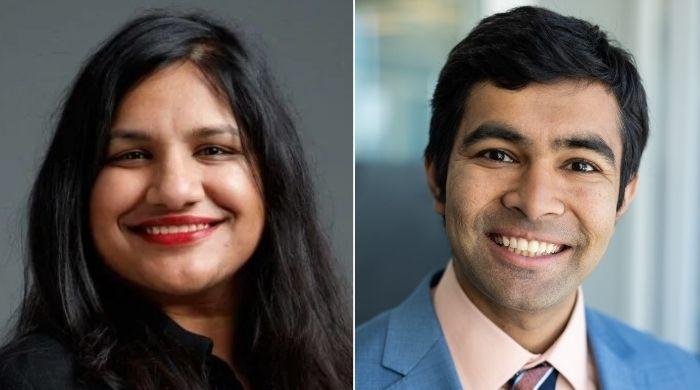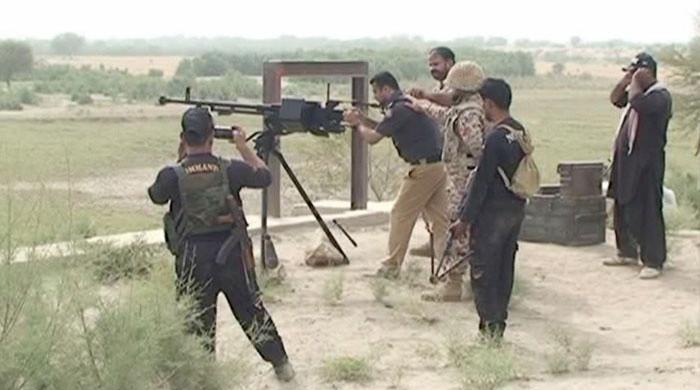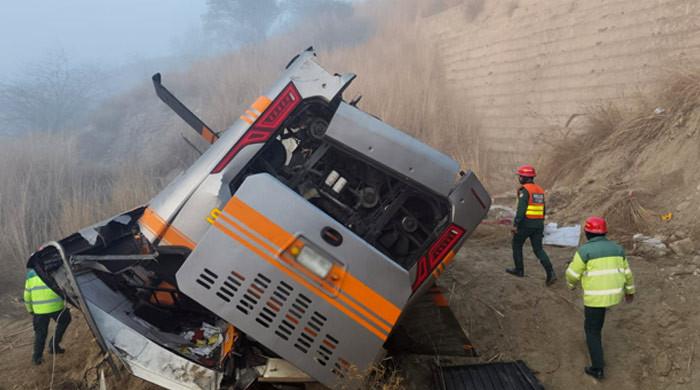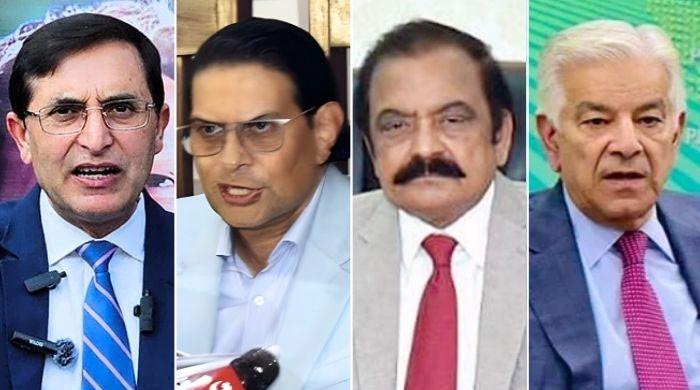Boiling Karachi braces for another monsoon lashing between Wednesday, Sunday
Weatherman says sea breezes have virtually come to a halt in the city, leading to muggy conditions
July 22, 2024
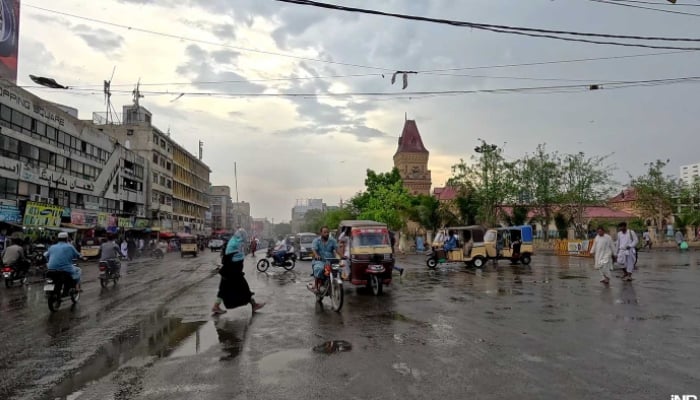
- Weather expert says sea breezes have come to halt in city.
- Heat intensity felt at 46 °C during day, says Jawad Memon.
- Weatherman forecasts hot and humid weather from July 24.
KARACHI: Following intermittent light to moderate rains last week, Karachi may get hit by another spell of monsoon rains between Wednesday and Sunday, depending on whether a weather system developing in the Bay of Bengal impacts Gujarat, India's coastal state.
Following a brief respite, the megalopolis again started boiling as the feels-like temperature hit 46 °C during the day, as per weather expert Jawad Memon.
The weatherman stated that the sea breezes had virtually come to a halt in the city, leading to muggy conditions. However, he forecasted that thunderclouds could form around the metropolis this evening, potentially bringing light to moderate rain to some areas.
"The sea breezes may resume blowing in the evening, improving the weather the next day," he said.
Nevertheless, Memon forecast another spell of hot and humid weather starting July 24. At the same time, he said a rain system, developing in the Bay of Bengal, might affect Sindh between July 24 and 28. He said if the same system hit India’s Gujarat then Karachi might also receive showers.
In the meantime, Memon said, sea breezes may be interrupted again.
For the last few days, Karachi has been receiving some amount of rain daily; however, not enough to break the heat wave.
Cholera on the rise
Water has accumulated in various pockets of the city as a result of sporadic brief spells of rain, leading to the rise of some water-borne diseases, including cholera.
Monsoon rains flood the roads for days, and sometimes weeks. These hard-to-drain pools of stagnant rainwater not only damage the city's infrastructure but also pose health hazards such as outbreaks of cholera, the most common monsoon-time disease.
Cholera cases are increasing due to the consumption of water contaminated by sewage.
According to a healthcare expert, the number of cholera cases registered at Jinnah Hospital has doubled to 70-80 cases per day from 30-40 cases.
The medical expert has warned the public against consuming substandard food and drinks, advising people to maintain hygiene, wash hands with soap, and consume clean drinking water.




